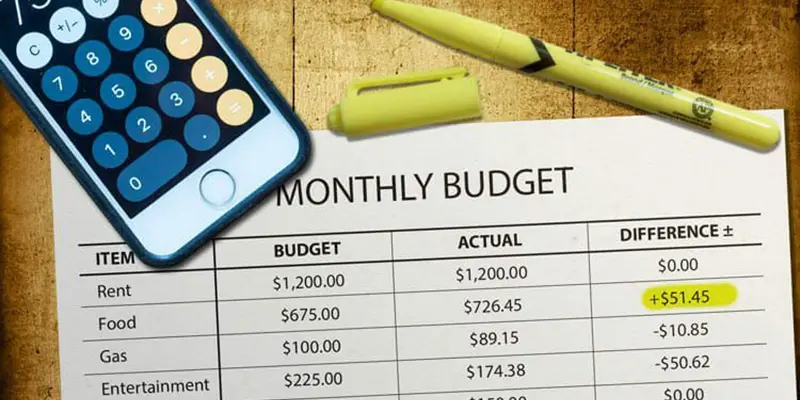Often, individuals encounter challenging financial circumstances. Navigating through such situations becomes particularly demanding in the face of unforeseen expenses. Nonetheless, there are strategies one can employ to prudently manage their finances. For those seeking to streamline their financial well-being and enhance savings, these ten practical tips will assist you.
What Is Money Management?
Effective money management encompasses budgeting, saving, investing, and spending to achieve one’s financial aspirations. While the concept seems simple, its practical application can be intricate.
When delving into money management, several essential aspects merit attention:
● Budgeting: This entails devising a comprehensive plan detailing your monetary allocations. To do this effectively, one must first discern their monthly income and expenditures. With this insight, you can designate funds towards various financial objectives.
● Saving: This involves setting aside a portion of your income, preferably in a savings account or a similarly secure location. Maintaining an emergency fund is paramount to address unforeseen financial needs. Additionally, long-term goals like retirement also necessitate consistent saving.
● Investing: Investment is the act of channeling funds into ventures or instruments that offer potential appreciation over time. This could include options such as stocks, bonds, or mutual funds. Though investing can expedite the attainment of your financial goals, it’s essential to note that it also introduces certain risks.
● Spending: This refers to the allocation of your funds towards necessities and various expenses, such as insurance premiums, healthcare, childcare, credit card dues, groceries, attire, and other items that consume your earnings.
Why Is Money Management Important?

Effective money management is crucial for several compelling reasons. First and foremost, it aids in circumventing debt. By living within one’s means and making judicious spending choices, one minimizes the risk of accruing debt, leading to substantial savings in the long term.
Secondly, adept money management paves the way for future savings. By setting aside a portion of your income regularly, you establish a financial cushion for retirement or unforeseen economic challenges, ensuring both peace of mind and future security.
Furthermore, strategic money management propels you towards your financial goals. A definitive financial roadmap increases the likelihood of its realization. For instance, if purchasing a home is a priority, accumulating funds for a down payment becomes essential, and proficient money management facilitates this endeavor.
In summation, the importance of money management cannot be overstated. It not only steers you clear of debt but also fortifies your future savings and accelerates the achievement of your financial milestones. Cultivating robust money management practices can significantly enhance one’s long-term financial health.
How To Manage Money Wisely?
Here are some suggestions for wise money management:
1. Develop a Personal Budget

Creating a personal budget stands as a pivotal step in astute money management. Such a budget not only provides clarity on your financial inflows and outflows but also facilitates the setting and attainment of financial objectives.
The methods to draft a budget are manifold. Numerous applications and software tools cater to budgeting needs, though traditional pen and paper remain effective. Regardless of the chosen method, it’s imperative to meticulously catalog all sources of income and every expenditure.
After formulating a budget, adhering to it is of paramount importance. Periodic reviews and adjustments ensure its continued relevance. If expenditures exceed the budgetary allocation, it’s advisable to compensate by curtailing expenses in other categories.
In essence, crafting a personal budget is instrumental for prudent financial stewardship. It aids in monitoring expenses, delineating financial aspirations, and ensuring fiscal discipline.
2. Monitor Your Budget Every Month

Maintaining a meticulous record of your expenditures helps ensure you do not exceed your financial means. It is also prudent to allocate a portion of your income to savings monthly, establishing a financial safety net for unforeseen expenditures.
Adherence to a budget, especially when procuring groceries and essential items, curtails superfluous purchases, leading to long-term savings. Moreover, endeavor to settle your credit card dues in entirety each month. This proactive approach prevents accruing interest, further safeguarding your financial health.
3. Put Money Aside for Large Purchases

Embarking on a significant purchase can be exhilarating. Whether it’s acquiring a new car or securing a home, the anticipation and eventual acquisition is unmatched. However, one must acknowledge that such substantial acquisitions often come with a hefty price tag. Thus, initiating savings well in advance is paramount to circumvent financial strain.
By consistently allocating a specified sum to a distinct account every month, you deter the temptation to spend prematurely. With a substantial reserve accumulated over time, you can confidently proceed with your purchase without jeopardizing your financial stability. Adhering to this methodical approach ensures a seamless and stress-minimized experience for your upcoming major acquisitions.
4. Save for Retirement

While retirement might seem distant, proactive saving is imperative. There are several strategic measures you can adopt to enhance your preparedness for retirement.
● Initiate savings at the earliest. Commencing your savings journey early provides more time for your capital to appreciate. Even modest monthly contributions can accumulate significantly over the years.
● Contribute diligently to a retirement fund that offers optimal returns. This necessitates thorough research and consultation with a financial advisor to understand the best avenues available.
● Devise a budget and adhere to it rigorously. This discipline prevents excessive spending, ensuring you reserve adequate amounts for savings. While planning for retirement is paramount, it’s equally vital to address your immediate financial obligations. This holistic approach ensures a comfortable present and secures your future.
5. Establish an Emergency Fund

Establishing an emergency fund is a fundamental step towards prudent financial management. An emergency fund serves as a financial buffer, aiding in unforeseen expenses, be it a sudden medical bill or vehicle repair.
Ideally, this fund should encompass at least three months’ worth of living expenses. Initiate the savings process by setting aside $50 weekly. Once your savings reach $1,000, consider diversifying your investment strategies.
If you are currently in debt, it’s advisable to prioritize its repayment. Nonetheless, maintaining a modest reserve for unforeseen expenditures remains a wise decision.
6. Set Financial Objectives

Setting financial objectives is paramount. Doing so provides clarity, prevents frivolous spending, and drives your focus toward a defined purpose. Consider both immediate and future aspirations when charting your financial path. For long-term objectives, such as buying a property or funding your child’s education, prudent investment in financial instruments is essential. Ensure that your targets are feasible, accompanied by specific timelines, to maintain motivation and guarantee judicious use of your resources.
7. Start Investing Early

Commencing your investment journey early is advantageous. Time plays a pivotal role in the realm of investments. The more extended duration you allow your capital to compound, the greater its potential for growth. Even initiating with a modest sum can yield substantial returns in the future.
Equity investments, or stocks, offer a promising avenue for capital appreciation. When you acquire stocks, you’re essentially buying a stake in a company. As the company flourishes and achieves greater success, the value of your equity correspondingly escalates, resulting in a potential increase in your investment.
Real estate is another lucrative avenue for investment. It offers a robust mechanism for wealth accumulation over time. Investing in real estate typically involves buying a property and renting it out to tenants. As property valuations appreciate, the worth of your investment concurrently ascends.
8. Protect Yourself With Insurance

It’s imperative to be equipped for life’s unforeseen events, including medical emergencies. In the face of adversity, health insurance, term insurance, and critical illness insurance stand as safeguards for your family. These policies are designed to shoulder the financial burdens of hospitalization, illnesses, and medical treatments.
9. Keep Your Credit Card Purchases to a Minimum

Maintaining prudence with credit card usage is crucial for sound financial management. While credit cards can be instrumental in bolstering your credit score and yielding rewards, they can also tempt you into excessive spending. Without vigilance, this can swiftly lead to burgeoning credit card debt.
To curb excessive credit card expenditures, it’s advisable to establish a monthly spending budget. Ascertain a reasonable monthly credit card spending limit and stay committed to it, ensuring you avert overspending and consequent debt.
Additionally, make it a practice to clear your credit card balance in entirety every month. This approach not only circumvents interest accrual but also ensures that your debt remains in check.
10. Make Regular Contributions to Your Savings Account

To optimize your financial strategy, consider establishing an automated system that channels a specified amount from your paycheck directly into a savings account, or scheduling a monthly transfer from your checking account to your savings.
Committing to regular savings not only fortifies your financial resilience against unexpected expenses or emergencies but also paves the way for realizing long-term objectives such as homeownership or a comfortable retirement.
In conclusion, astute financial management can set the stage for a secure retirement, memorable holidays, and the reassurance that comes from mastering your financial destiny. For those new to financial planning or seeking further clarity, enlisting the expertise of a financial advisor can be invaluable in crafting a roadmap to attain your investment aspirations.




